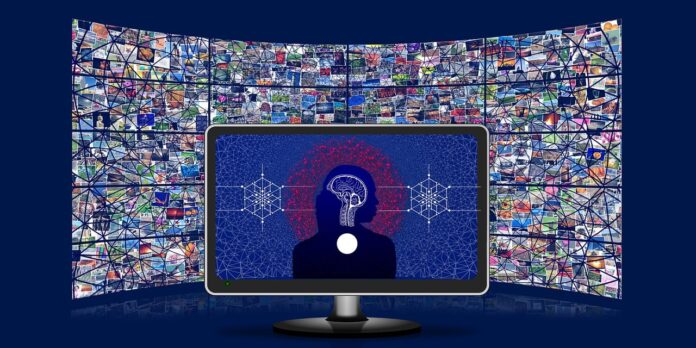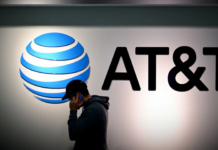Getty Images, a leading provider of stock images, editorial photos, videos, and music, has recently announced the launch of their new generative AI art tool called Generative AI by Getty Images. This tool, in collaboration with Nvidia, utilizes a powerful AI model trained on a vast portion of Getty’s extensive library of stock content. With this AI-powered image generator, Getty aims to provide a “commercially safer” option compared to similar tools available in the market.
Generative AI by Getty Images
Overview
Generative AI by Getty Images leverages the capabilities of artificial intelligence to generate images based on text descriptions. Similar to platforms like OpenAI’s DALL-E 3 and Midjourney, this tool creates visuals from prompts such as “photo of a sandy tropical island filled with palm trees.” The AI model used for this tool was trained on a significant portion of Getty’s content library, which consists of approximately 477 million stock assets.
Training Data
The AI model used in Getty’s generative AI tool has been trained on a diverse range of content from Getty’s extensive library. This rich and varied training data enables the AI to generate visually appealing and accurate images based on text input.
Rendering Images from Text Descriptions
Text-to-image transformation is the core functionality of Getty’s generative AI tool. Customers can input text descriptions or prompts, and the AI model will generate corresponding images. The tool provides users with Getty’s standard royalty-free license, offering protection against copyright lawsuits and granting perpetual, worldwide, nonexclusive usage rights across all media.
Getty’s Royalty-Free License
Getty’s generative AI tool comes with their standard royalty-free license. This license allows customers to use the generated images for commercial purposes without the need for additional permissions or fees. The royalty-free license also includes indemnification, providing protection against copyright infringement claims.
Safeguards in Place
To ensure responsible and ethical use, Getty Images has implemented several safeguards within their generative AI tool. These safeguards prevent the tool from being used for disinformation, misinformation, or replicating the style of living artists. For example, the tool will not allow the creation of images depicting public figures in sensitive contexts or imitating the artistic style of renowned artists. Additionally, all images generated by the tool are marked with a watermark identifying them as AI-generated.
Usage and Compensation
Tool Availability
Getty’s generative AI tool will be available on their website, allowing easy access for customers. It can also be integrated into various applications and websites through an API, expanding its accessibility and usability.
Customization with Brand Data
Soon, Getty will offer the ability to customize the generative AI tool with proprietary data, enabling users to create images consistent with their brand style or design language. This customization feature will provide brands and marketers the opportunity to incorporate their unique visual identity into the generated images.
Separate Pricing Structure
Getty’s generative AI tool will have a separate pricing structure from their standard subscription plans. The pricing will be based on the volume of prompts used, ensuring flexibility for different usage needs. This approach allows customers to tailor their usage and pricing according to their specific requirements.
Revenue Sharing with Contributors
As a commitment to supporting their contributors, Getty Images will share the revenue generated from the generative AI tool with the photographers and artists whose works were used to train the AI model. The revenue sharing will follow a set formula based on various factors, ensuring fair compensation and recognition for the creators involved.
Getty’s Stance on Generative AI
Criticism of Stable Diffusion
Prior to the launch of their own generative AI tool, Getty Images had been critical of other AI products in the market, specifically Stable Diffusion. Getty filed a lawsuit against Stability AI, the company associated with Stable Diffusion, for allegedly copying and processing millions of Getty-owned images and metadata without proper compensation or notification to Getty contributors. This lawsuit reflects Getty’s dedication to protecting the intellectual property rights of their contributors.
Legal Action and Intellectual Property Rights
Getty Images emphasizes the importance of addressing intellectual property rights in the generative AI landscape. They believe that generative models must ensure the rights of other content creators. Getty’s legal action against Stability AI and their commitment to providing fair compensation to their contributors demonstrate their efforts to establish clarity and fairness within the industry.
Other Companies’ Approaches to Ethical AI
Bria’s Generative AI Art Tool
AI startup Bria offers a generative AI art tool that relies on licensed content from individual photographers, artists, media companies, and stock image repositories. This approach ensures that the creators of the content used to train the AI model receive a portion of the company’s revenue, providing them with fair compensation for their contributions.
Ascendant Art’s Royalties for Artists
Avatar creator Ascendant Art has taken a unique approach by promising to pay royalties to artists who voluntarily submit their artwork to train their AI models. By recognizing and rewarding artists for their contributions, Ascendant Art aims to foster a more ethical and mutually beneficial relationship between AI technology and creative professionals.
Shutterstock’s Reimbursement Policy
Shutterstock, a rival of Getty Images, has implemented a reimbursement policy to compensate creators whose work is used to train AI art models. This policy reflects the importance of acknowledging and rewarding the photographers and artists who contribute to the development of AI technology.
Adobe’s Compensation Model
Adobe, a prominent player in the digital content industry, is in the process of developing a compensation model for contributors to Adobe Stock, their stock content library. This model aims to allow contributors to monetize their talents and benefit from the revenue generated by Adobe’s generative AI technology, known as Firefly.
In conclusion, Getty Images’ launch of their AI-powered image generator, Generative AI by Getty Images, presents an exciting development in the field of artificial intelligence. With its comprehensive training data, safeguards, customization options, and commitment to compensation for contributors, Getty aims to provide a commercially safer and more ethical approach to generative AI. As other companies also explore and implement similar approaches, it is clear that the industry is evolving towards greater accountability, fairness, and protection of intellectual property rights.











